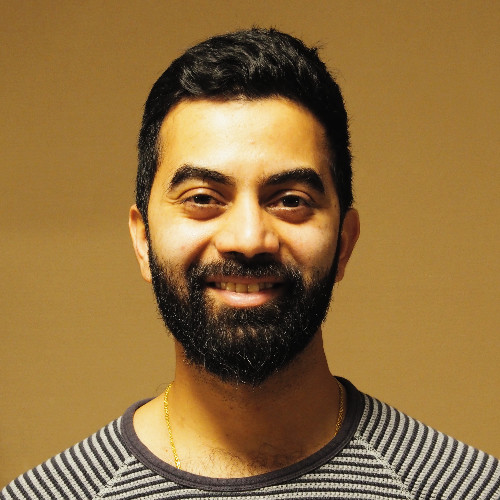Home
Greetings!
 .
.
Hi! My name is Manohar Jonnalagedda. You can call me Mano. I like designing tools that substantially improve the quality of life of their users, and I love working in teams to build these. By doing that, I have gained expertise in privacy-enhancing technologies, language design, formal methods, and compilers. I have experience in building software from scratch, as well as contributing to larger projects. I occasionally write and talk about them.
I am currently involved in designing the future of privacy-preserving programming at Inpher. In the past I worked combining program synthesis and machine learning for a best-of-both worlds approach, at the wonderful MSR India. I learnt all about compilers and DSLs during my PhD at the Programming Methods lab at EPFL, colloquially known as the Scala lab.
Otherwise, I enjoy music. I perform as an MC in the Skankin’ Society Sound System. You can find out more about sound systems here. You can also experience sound system culture by showing up at one of our shows.
If you happen to find this stuff interesting, please do let me know (by email/github)!
Projects
Speakeasy
Speakeasy is a library for composing privacy-enhancing technologies. It allows you to express the general flow of secret and non-secret data as a logical graph, and then offers a way to analyze this graph and execute it on different backends depending on the need. As a result, a user not only gets domain-specific annotations and error-messages for the privacy-preserving part of their code, they can also run full pipelines of non-trivial programs defined in a single, cohesive environment.
| [video | slides] |
An earlier talk details how we initially designed an external DSL for multi-parti computation. Slides can be found here.
Synthesis and machine learning for heterogeneous extraction
In this project, we combine machine learning and program synthesis in order to improve automated data extraction from semi-structured documents. The idea is to let machine-learning techniques identify common patterns (e.g. flight number, departure time) in a small training dataset, and use program synthesis to generate a program based on these examples to extract from a test dataset. This hybrid approach helps not only extract patterns better, it also helps a user understand (via the generated program) how some of these patterns have been identified. [publication]
Parsequery
Keywords — parsing, macros, multi-stage programming, partial evaluation
A macro-based Scala library that eliminates abstraction overhead of composing parsers. The resulting parsers exhibit performance close to hand-optimized C code.
Results
- 2-3x performance improvements over Fastparse, a popular parser combinator library in Scala.
- Order of magnitude performance improvement over standard parser combinators.
- Within 75% throughput when compared to Nginx HTTP parser, hand-optimized in C.
- Up to 120% throughput when compared to JQ JSON parser.
- Publication at OOPSLA 2014.
- Presentation at Scala World 2016.
- Dissertation related to the topic.
Staged fold fusion
Keywords — fusion, deforestation, multi-stage programming, partial evaluation
An implementation of various fusion optimizations on list-like data structures, as a library: the optimizations do not depend on a specific compiler, so can be easily ported to other languages.
Results
- Insights for implementing practical, optimizing libraries: basis work for related projects.
- Publication at Scala 2015.
Packrat parsing in Scala
Keywords — parsing, memoization
An implementation of packrat parsing in Scala. These parsers can handle a larger class of parsers than before, and handle left recursion. The implementation is now part of the Scala standard parser combinator library.
Posts
2016
January
- January 13, 2016 » Stream Fusion is PEF-ible
2015
September
- September 4, 2015 » Staged Parser Combinators and Recursion
- September 2, 2015 » Staged Parser Combinators
April
- April 17, 2015 » Code improvements to Staged FoldLeft
March
- March 20, 2015 » Of Either and CPS encodings thereof
- March 12, 2015 » Staged FoldLeft and GroupBy
- March 3, 2015 » Staged FoldLeft and Partition
February
- February 19, 2015 » Staging FoldLeft
- February 11, 2015 » Shortcut Fusion - Part 2
January
- January 26, 2015 » Shortcut Fusion - Part 1
- January 15, 2015 » The Essence of Fold
- January 11, 2015 » A direct embedding of the untyped Lambda Calculus
2014
September
- September 3, 2014 » Understanding the fix operator